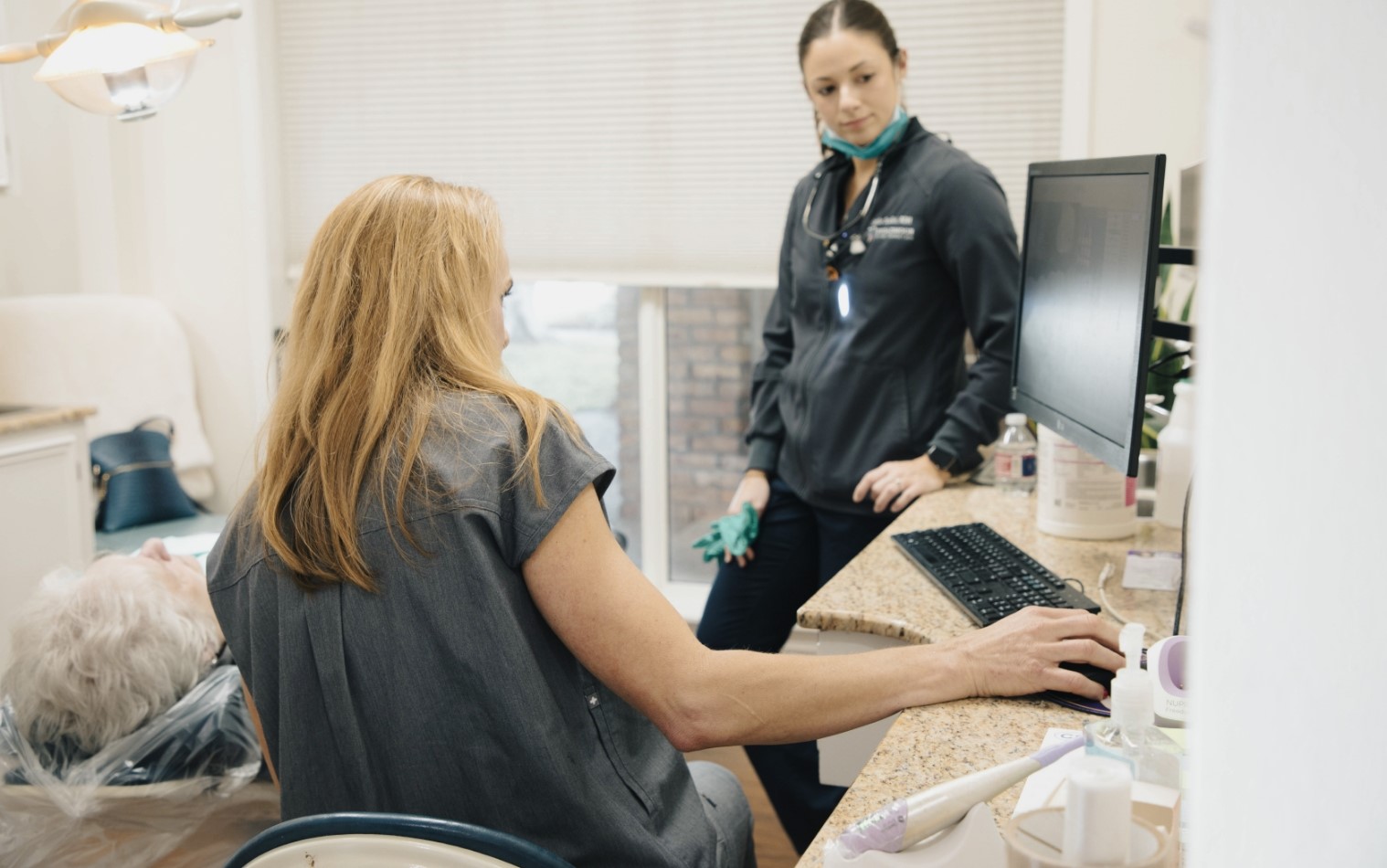

For many people, doctor or dentist visits can trigger varying levels of anxiety often called “White Coat Syndrome Anxiety”. This is a phenomenon where a person’s blood pressure will rise at the site of a medical professional in a white coat or even sometimes prompted by just the medical setting. If anxiety is keeping you from getting the proper dental care you need, keep reading for some helpful tips in managing your stress when you visit the dentist.
1. Talk it Out:
It’s important to share feelings of anxiety with your dentist and dental staff so they can make any adaptations to your visit that might result in a more calming experience. This might include providing music, blankets, stress balls or even adjustments to procedures.
2. Be Conscious of Diet:
Caffeine consumption prior to a dental visit can increase anxiety, so this and other food choices, such as processed or sugary foods, should be consciously avoided. Foods high in protein are good choices because they contain amino acids that help produce neurotransmitters that prevent anxiety/stress or depression.
3. Choose Strategic Appointment Time:
Choose a time for your dental visit that does not cause you to be rushed or that falls into your daily routine. Sometimes drastic shifts in your routine cause the disruption of the emotional processing center in the brain, which can cause varying levels of anxiety. Routines give you stability.
4. Ask Questions and Provide Signals:
Your dental hygienist or dentist is open to sharing step-by-step processes to help you know what to anticipate during your visit or procedure. Just knowing what to expect can help ease your mind and calm your nerves. Another option for communication is hand signaling by the patient. This can help in reducing anxiety and fear of the inability to communicate while your dentist is working in your mouth. The dentist-patient relationship requires trust and understanding and universal set of hand signals are a good building block.
As you now know, there are considerations for both the patient and dental staff to help manage anxiety and stress levels, and if addressed properly, going to the dentist can be a non-threatening and even welcoming experience.